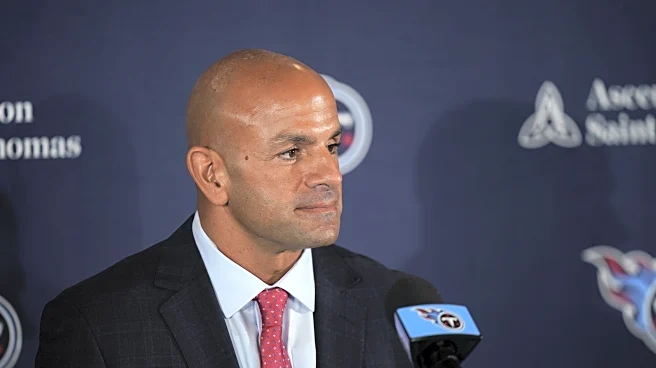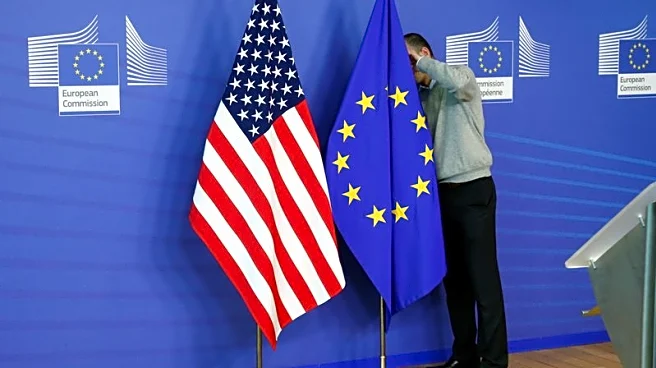What's Happening?
House Judiciary Committee Chairman Jim Jordan has disclosed that the Justice Department under former President Joe Biden secretly subpoenaed his phone records over a two-year period. This action was part of the Arctic Frost investigation, which is linked
to the January 6, 2021 Capitol riot. The subpoena, issued to Verizon, sought detailed call records, including session times, durations, location data, and IP addresses, but did not include the contents of text messages or phone calls. Jordan criticized the subpoena as an example of government weaponization, expressing concern over the breadth of information gathered, which included who he called, who called him, and his location during calls. The subpoena was accompanied by a nondisclosure order, preventing Verizon from revealing its existence.
Why It's Important?
The revelation of the subpoena raises significant concerns about privacy and government overreach. It highlights the tension between the Justice Department and Republican lawmakers, particularly in the context of investigations related to the January 6 Capitol riot. The subpoena's scope, which included detailed call records and location data, underscores the extent of surveillance that can be conducted under government investigations. This development may fuel further debate over the balance between national security and individual privacy rights, potentially impacting public trust in government institutions. Additionally, it could influence ongoing discussions about the politicization of federal investigations and the perceived targeting of political figures.
What's Next?
The disclosure by Jim Jordan is likely to prompt further scrutiny and calls for transparency regarding the Arctic Frost investigation and similar government actions. Republican lawmakers may seek to investigate the Justice Department's practices and push for legislative measures to prevent perceived abuses of power. This could lead to hearings or inquiries aimed at understanding the rationale behind the subpoenas and ensuring accountability. The situation may also influence public discourse on privacy rights and government surveillance, potentially leading to policy proposals aimed at safeguarding individual freedoms.
Beyond the Headlines
The implications of this development extend beyond immediate political ramifications. It raises ethical questions about the use of surveillance in government investigations and the potential for misuse of power. The nondisclosure order accompanying the subpoena highlights concerns about transparency and accountability in government actions. This situation may contribute to broader discussions about the need for checks and balances in surveillance practices and the protection of civil liberties. It also underscores the importance of maintaining public trust in government institutions, which can be eroded by perceived overreach and lack of transparency.
















